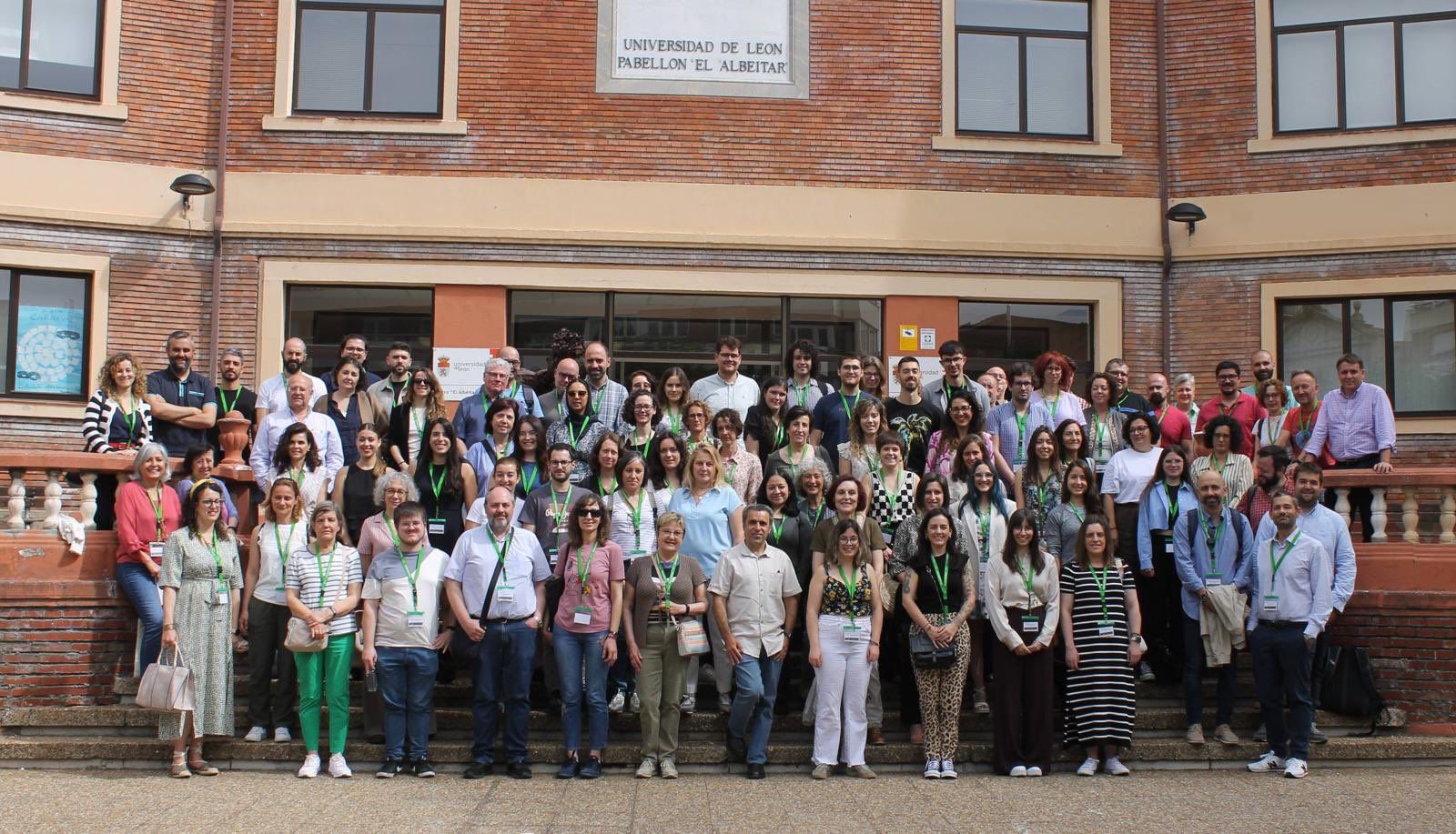Valencia, June 9, 2024 – The researchers from MAINBIOTICS at the Institute of Agrochemistry and Food Technology (IATA-CSIC) participated in the scientific meeting of the 17th edition of the Spanish Network of Lactic Acid Bacteria (RedBAL). This scientific event provided a platform for the exchange of knowledge and the promotion of research in the field of lactic acid bacteria, intestinal microbiota, and their applications in health and biotechnology.
The meeting took place on June 6-7, 2024 at the Paraninfo Gordón Ordás of El Albéitar at the University of León, under the theme “Lactic Bacteria in Foods and Intestinal Microbiota: Biotechnological Applications and Health”. It was organized by the Department of Hygiene and Food Technology at the University of León (ULE), in collaboration with the Institute of Dairy Products of Asturias. The event was attended by around 100 researchers from Spanish universities, research centers, and institutions from Oporto and Turin.
The program, designed by professors Mª Eugenia Tornadijo and Avelino Ordóñez from ULE, alongside Patricia Ruas, coordinator of RedBAL and a researcher at the Institute of Dairy Products of Asturias, included five scientific sessions, three plenary lectures, and the presentation of around thirty poster communications.
Over the course of the two-day event, 34 presentations were given by researchers from various Spanish universities and international experts, as well as researchers from renowned research centers and hospitals.
Among the attendees were approximately 100 researchers from various universities and centers of the Spanish National Research Council (CSIC), who discussed the relevance of lactic acid bacteria in food and human health from different perspectives.
Representing MAINBIOTICS from the Lactic Acid Bacteria and Probiotics Group at IATA-CSIC, the predoctoral researchers Eduard Flores, Anna Samarra, and Anna Valls, along with postdoctoral researcher Christine Bäuerl, attended the event.
Eduard Flores, a doctoral student at IATA-CSIC, focuses on research in nutritional epidemiology and biotechnology, with an emphasis on maternal and child health. He presented and defended the results of an international collaborative research project titled “Mother-to-infant vertical transmission: A systematic review and proportional meta-analysis of Bifidobacterium strain transmissibility”. His study highlighted the crucial role of mothers as a significant source of Bifidobacterium in the colonization of the infant gut.
Anna Samarra, a doctoral student, presented a poster titled “Deciphering the evolution of the infant intestinal resistome”, focusing on the evolution of the resistome and mobilome from 7 days to 4 months of age, as well as the impact of birth type and breastfeeding on this evolution.
Additionally, Christine Bäuerl, postdoctoral researcher, presented her poster titled “The binding of IgA to different Bifidobacterium strains from infant stool samples modulates mucin adhesion and Toll-like receptor 2 activation”, where she studied how IgA influences the adhesion of Bifidobacterium to intestinal mucin and the activation of Toll-like receptor 2 (TLR2), providing new insights into infant gut microbiota.


